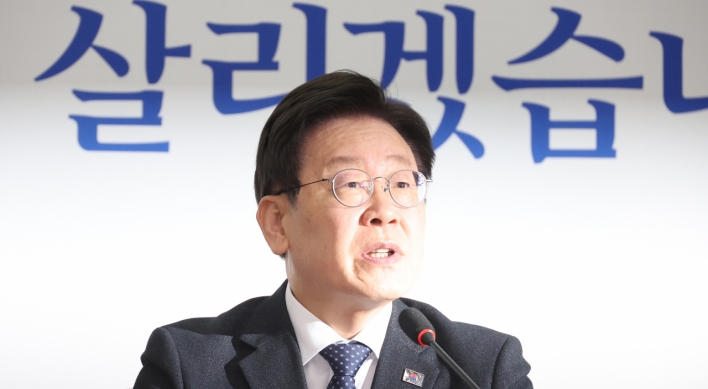South Korea’s big businesses expect tough talks with their unions over major thorny issues such as the scope of ordinary pay in the annual wage negotiations this year, a poll conducted by a corporate lobby said Monday ahead of the annual labor talks season.
According to the survey carried out by the Federation of Korean Industries on the 300 largest companies in terms of sale, 46.3 percent said they are expecting talks to be more difficult this year compared with 2013. Another 40.7 percent said the overall environment for wage talks was not different from last year, and only 13 percent expected things to be better.
Eight out of 10 said the ordinary wage issue is posing a stumbling block, with 15.8 percent saying greater demand for more wages and benefits will likely hinder progress. Companies also raised concerns about the demand for fewer work hours without a reduction in wages, as well as an extension of the retirement age.
The ordinary wage became a critical issue in labor-management talks in South Korea after the Supreme Court ruled in January that fixed bonuses and fringe benefits given on a regular basis should be counted as part of standard wages. The expanded scope of ordinary wages can affect the amount of severance pay employees receive when they retire or quit their posts as well as the pay rate for overtime and weekend shifts. The corporate community complains that their labor costs will rise, hurting their already-slumping business.
GM Korea last week surprised the business community by offering to include bonuses in calculating standard salaries.
The FKI’s latest findings showed that 60.6 percent of the companies had a labor union.
The latest poll showed 51.2 percent of the canvassed companies expect negotiations to drag on for more than three months.
“Workers at Renault Samsung and GM Korea have all voted to go on strike because of the ordinary wage issue, with workers at the country’s major shipyards, who have not staged a strike in 19 years, likely to follow suit,” said an FKI official.
He said that with local companies facing unfavorable exchange rates and stiff challenges from rivals, there is a need to find middle ground quickly without increasing the burdens for businesses and hurting exports, which are the lifeline of South Korea’s economy.
The federation has been calling for a labor environment in which wages are based on productivity and results instead of the traditional system based on seniority. (Yonhap)
According to the survey carried out by the Federation of Korean Industries on the 300 largest companies in terms of sale, 46.3 percent said they are expecting talks to be more difficult this year compared with 2013. Another 40.7 percent said the overall environment for wage talks was not different from last year, and only 13 percent expected things to be better.
Eight out of 10 said the ordinary wage issue is posing a stumbling block, with 15.8 percent saying greater demand for more wages and benefits will likely hinder progress. Companies also raised concerns about the demand for fewer work hours without a reduction in wages, as well as an extension of the retirement age.
The ordinary wage became a critical issue in labor-management talks in South Korea after the Supreme Court ruled in January that fixed bonuses and fringe benefits given on a regular basis should be counted as part of standard wages. The expanded scope of ordinary wages can affect the amount of severance pay employees receive when they retire or quit their posts as well as the pay rate for overtime and weekend shifts. The corporate community complains that their labor costs will rise, hurting their already-slumping business.
GM Korea last week surprised the business community by offering to include bonuses in calculating standard salaries.
The FKI’s latest findings showed that 60.6 percent of the companies had a labor union.
The latest poll showed 51.2 percent of the canvassed companies expect negotiations to drag on for more than three months.
“Workers at Renault Samsung and GM Korea have all voted to go on strike because of the ordinary wage issue, with workers at the country’s major shipyards, who have not staged a strike in 19 years, likely to follow suit,” said an FKI official.
He said that with local companies facing unfavorable exchange rates and stiff challenges from rivals, there is a need to find middle ground quickly without increasing the burdens for businesses and hurting exports, which are the lifeline of South Korea’s economy.
The federation has been calling for a labor environment in which wages are based on productivity and results instead of the traditional system based on seniority. (Yonhap)
-
Articles by Korea Herald







![[Hello India] Hyundai Motor vows to boost 'clean mobility' in India](http://res.heraldm.com/phpwas/restmb_idxmake.php?idx=644&simg=/content/image/2024/04/25/20240425050672_0.jpg&u=)










